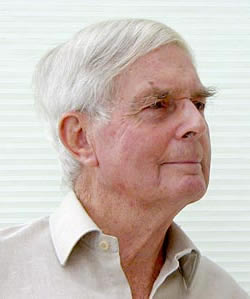{{ item.media_date }}

People

Stephen Carr
Profile
This individual is not a direct affiliate of the Berkley Center. They have contributed to one or more of our events, publications, or projects. Please contact the individual at their home institution.
Stephen Carr is an agronomist. He has lived in a cabin on Zomba mountain in southern Malawi since 1989. After graduating from London University in 1951, he moved to Southern Sudan and spent eight years living as a local villager in order to gain insight into the basic motivation and skills of small-scale farmers. He later worked with his wife in Uganda as agricultural missionaries where they initiated smallholder tea growing, intensive dairy production, large scale population movement and established a research station for highland crops. In late 1972 he was forced to leave Uganda due to a misunderstanding with Idi Amin. Carr then held a series of agricultural advisor posts with the governments of Sudan and Tanzania and until joining the World Bank in 1978. He was honored by the British government as an Officer of the British Empire for his services to African Agriculture and elected an Honorary Life Fellow of London University in recognition of his “unparalleled knowledge of African Agriculture”. With the World Bank he worked on agriculture across Eastern, Western and Southern Africa. When he retired from the World Bank in 1989 he moved to Malawi. Since then he has focused on smallholder agriculture and poverty there. He started a fertilizer-for-work program where Malawians built access roads and implemented irrigation and reforestation projects in return for inputs – mostly fertilizer and seed. When he was preparing to expand this initiative still further in 2005 the Malawi government decided to widen access to fertilizer and seed through a subsidy program which would meet the needs of a much larger proportion of the population so Carr switched his attention to this initiative. His role was to soften the international community’s opposition to Malawi’s fertilizer subsidies. He succeeded and thus is in good measure responsible for Malawi’s “miracle” of agricultural success in recent years. He describes his role as acting “as a midwife.” “It was Malawians [who] did the hard labor.”
Opens in a new window
